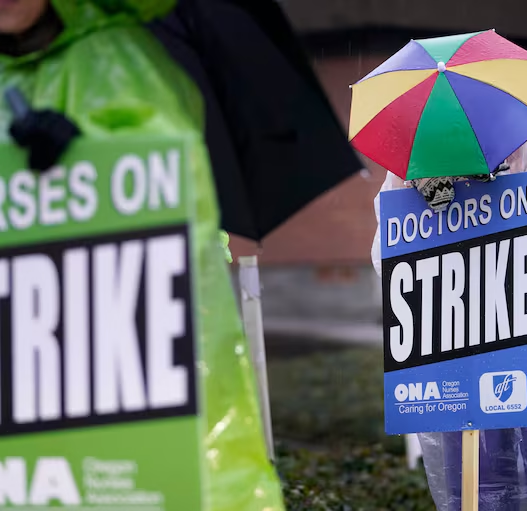The ongoing Kaiser Permanente mental health strike has entered its 10th week, highlighting the growing tension between mental health providers and the healthcare giant.
Therapists and clinicians are demanding fairer working conditions, including manageable caseloads and better resources to serve patients effectively.
At the heart of the strike lies a deeper issue: the sustainability of mental health care in an overburdened system.
Why Are Clinicians Striking?
The strike stems from concerns over staffing shortages, overwhelming caseloads, and insufficient time to provide quality care.
Mental health professionals argue that these conditions not only harm clinicians but also jeopardize patient outcomes.
Many providers have cited burnout as a major issue, driven by systemic inefficiencies that prioritize profits over care.
Kaiser Permanente, one of the largest healthcare organizations in the country, has faced mounting criticism from both staff and patients for delays in mental health services.
Therapists are advocating for changes that would allow for timely, consistent care, such as improved hiring practices and increased support for providers.
The Human Impact
For many striking clinicians, the decision to walk off the job wasn’t taken lightly.
Many feel a strong sense of responsibility to their patients but argue that the current system doesn’t allow them to provide the level of care their clients deserve.
Strikers report feeling frustrated and disheartened, with some describing the situation as a tipping point in their careers.
Patients, too, are bearing the brunt of this crisis.
With appointments delayed and services disrupted, many individuals seeking mental health support find themselves stuck in limbo.
For those facing urgent mental health needs, these delays can have serious consequences.
Kaiser’s Response
Kaiser Permanente has acknowledged the challenges but maintains that progress is being made to address the concerns raised by clinicians.
However, striking workers argue that actions have been too slow and insufficient to create meaningful change.
The healthcare provider has also pointed to efforts to increase staffing and invest in mental health infrastructure.
Yet, the ongoing strike suggests that these measures haven’t met the needs of its mental health workforce or resolved the underlying issues.
What’s at Stake?
The Kaiser strike is more than a labor dispute; it’s a reflection of a larger problem in the U.S. healthcare system.
Mental health services, long underfunded and stigmatized, are now facing unprecedented demand.
Without addressing systemic issues, the gap between patient needs and available resources will only continue to widen.
Striking therapists are not just fighting for themselves—they’re advocating for a system where mental health care is accessible, timely, and centered on patient well-being.
Their demands echo a growing call for healthcare organizations to prioritize mental health with the same urgency as physical health.
Looking Forward
As the strike continues, both clinicians and patients are watching closely to see if meaningful change will come.
The outcome could set a precedent for how other healthcare systems address similar challenges, potentially influencing the future of mental health care nationwide.
This strike is a reminder that mental health care is a cornerstone of overall well-being.
Supporting the people who provide that care is not just an ethical imperative—it’s essential for a healthier, more equitable society.























